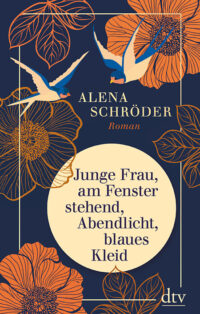Berlin, 2017: 27-year-old Hannah finds a letter from a lawyer, identifying her grandmother and her as possible heirs to a Jewish art collection which had been confiscated under the Nazi regime. However, this is the first time the young student hears anything about possible Jewish roots. And why has her beloved grandmother Evelyn, her only living relative, never lost a word about the past?
Rostock, 1924: 18 year-old Senta Köhler unintentionally falls pregnant by a highly decorated war hero from WWI. They do get married but the marriage fails within two years. In the end, Senta’s husband will only agree to a divorce if Senta leaves their daughter, Evelyn, with him, thus forcing her to decide between her freedom and her child.
Berlin 1927: The metropolis is the hub of life itself and more specifically of a new life for Senta who has found work at a newspaper and quickly rises from typist to journalist. She marries a Jewish colleague, Julius Goldmann, whose father is a respected art dealer and enters Berlin’s vibrant art and culture scene. When the Nazis rise to power, Senta and her husband decide to flee abroad, leaving everything behind … their family as well as priceless pieces of art. The Young Woman, Standing by the Window, Evening Light, Blue Dress by Vermeer becomes the epitome of loss for Senta, as she will not see any of them ever again.
Interweaving the fate of these women, Alena Schröder empathically traces the question of how we deal with our personal history and the legacy of our ancestors.
